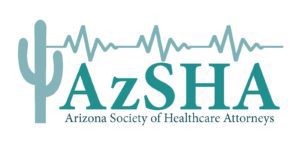Looking Back on Supreme Court Impacts in Public Health Law, 2022-23
by: Erica N. White, J.D.; Jennifer L. Piatt, J.D.
The 2023-24 U.S. Supreme Court term contains multiple cases with significant nation-wide impacts on public health, including FDA powers to regulate specific medications, supremacy of federal emergency health care laws, and judicial deference to administrative agency interpretations generally. Previously, in its 2022-23 term, the Court drastically changed the public health landscape nationally, issuing far-reaching opinions limiting civil rights initiatives, expanding First Amendment protections, strictly controlling the reach of federal administrative agencies, and generally protecting commercial or industry interests over clear threats to the public’s health.
The Center for Public Health Law & Policy at ASU’s Sandra Day O’Connor College of Law, in its second annual assessment, identified the 2022-23 term’s “top 10” Supreme Court public health-related actions.
Several cases impacted civil rights. In companion cases brought against Harvard University and the University of North Carolina-Chapel Hill, the Court overruled decades-old affirmative action precedent. Projected limitations on race considerations in public and private allocations extend past the education sector. However, the Court rejected Alabama’s attempts to racially gerrymander its voting districts based on likely Voting Rights Act violations, leaving the law in place. However, the Court rejected notions that treaties with the Navajo Nation implicated affirmative federal duties to defend the Tribe’s water rights, even as the Colorado River is historically depleted.
The Court remains hesitant to apply existing statutory laws to the internet. Despite the platforms’ use by known terrorists, the Court declined to extend liabilities to internet platforms Google and Twitter for mere use of the websites. Similarly, the Court found that individuals making threatening social media messages could not be found criminally liable without a heightened “true threat” showing. The Court continued its expansion of First Amendment protections by favoring a Colorado website developer’s discrimination against customers based on their sexual orientation or gender identity.
The Court continued its hostile treatment of administrative authorities while upholding strong executive authorities over immigration. The Court struck down the Biden-Harris Administration’s student loan forgiveness plan in August 2023 as too politically and economically significant for agencies to regulate absent specific legislation, exceeding the Department of Education’s statutory authority. However, the Court declined to extend standing to Texas and Louisiana in challenges to the Biden-Harris Administration’s immigration policies, finding no ability for states to contest executive immigration prosecutorial authorities. And, the Court upheld private actions pursuant to a federal nursing home reform statute, finding “unambiguous” individual recovery rights in the law.
“Shadow docket” Court action during the 2022-23 term was also significant. In April 2023, the Court stayed a Texas federal court decision condemning mifepristone, part of the two-drug “abortion pill” regime, as unconstitutionally approved by FDA. The Court will undoubtedly assess this case more fully during the upcoming term, and its decision may impact not only abortifacients, but the FDA’s overall scheme to approve safe and effective drugs for circulation in interstate commerce.
Following the conclusion of the Court’s 2023-24 term in late June 2024, public health legal scholars will re-visit the term, providing analysis and predictions of the impacts going into the following 2024-25 term.
